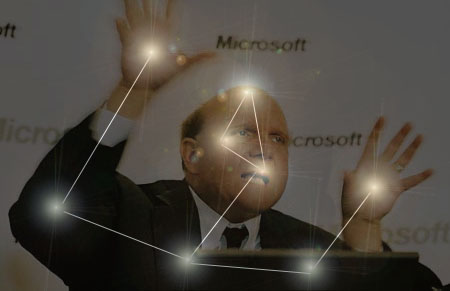We asked a few people about their reasons for not wanting to move to Windows 8 and the most common theme was they did not wanting to learn a new OS. Although many stated that they heard Windows 8 was faster they simply did not want to learn a new way of doing things. Behind those that did not want to learn something new was the group that simply was happy with their current OS. This is not an uncommon thing to hear when new products come out though and does not indicate a positive or negative reaction to Windows 8. A very interesting group was one that claimed they were waiting for Microsoft to “get it right with Windows 9” They joked about Windows ME and Vista saying that they only buy every other OS that Microsoft releases.
When we first started covering Windows 8 we talked about Microsoft’s thought process that makes them feel that they can maintain the market share lead simply by releasing an OS. Windows 8 does have some improvements as we have said before, but for many the unknowns of compatibility and the push to make Windows more like a mobile OS were just too much. These items far outweigh the slight performance improvements that Windows 8 shows in some early tests. So far our testing shows that the biggest performance gains are in boot time, desktop performance and application launch. When it comes to running games or other more system intensive applications (such as video editing and games) the performance gain is minimal and in some cases the game or app in question will not run at all. Looking over Facebook this morning we found numerous post about games or apps that would not work in Windows 8. Of course there are those that say they are having no problems at all (which happens with every new product launch). For those that had issues the comments usually ended with “back to Windows 7” while those that are having no issues are praising Windows 8 as faster/better.
It really feels a lot like the Windows Vista Launch when too many things changed for consumers to get behind the new OS (and the changes with Vista were not as great). On the whole the people that I hear are not having any issues still say you have to have an open mind or that all you have to do is download a program to run like it is Windows 7. To me keeping an open mind has a double meaning. On the one hand it means be open to change, but it also can mean accept faults and flaws that you may encounter. In this case the amount of change is going to be too much form a large number of people from new users to power users that want more control over their OS. This seems to be supported by a few comments in the media that are comparing Windows 8 to Apple’s very restrictive iOS. Although we are sure they are mostly talking about Windows RT and not Windows 8 it does illustrate what we talked about when we described Microsoft’s confusing message to the market people will confuse the two (just like they did with the “designed for Vista” logos when Vista came out).
To help correct this Microsoft has plans for a $1 Billion campaign including a TV blitz to try and sway people to switch to Windows 8. They are also offering some impressive incentives to get people to pick up an Xbox 360 (and join Xbox Live) so they can get you into their planned eco system. How well this campaign will work is something we will have to wait and see on, but we do know that a multi-million dollar campaign failed to generate interest for Windows Phone 7.x and when you consider that Windows 8 looks like Windows Phone on the desktop we are not sure that any marketing campaign will remove that feeling. Tell us what you think about Windows 8/Windows RT in our Forum and on our Facebook Page.




